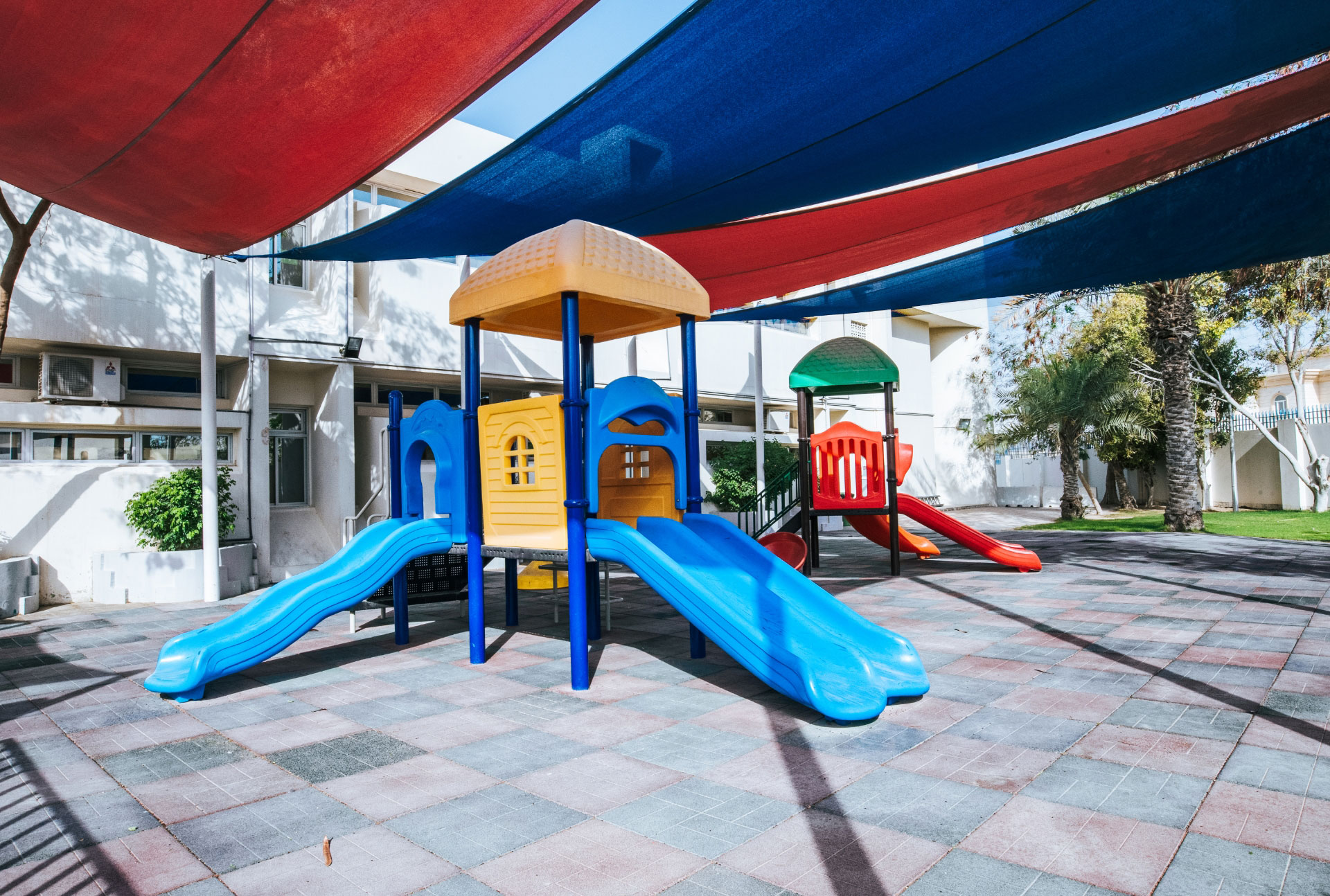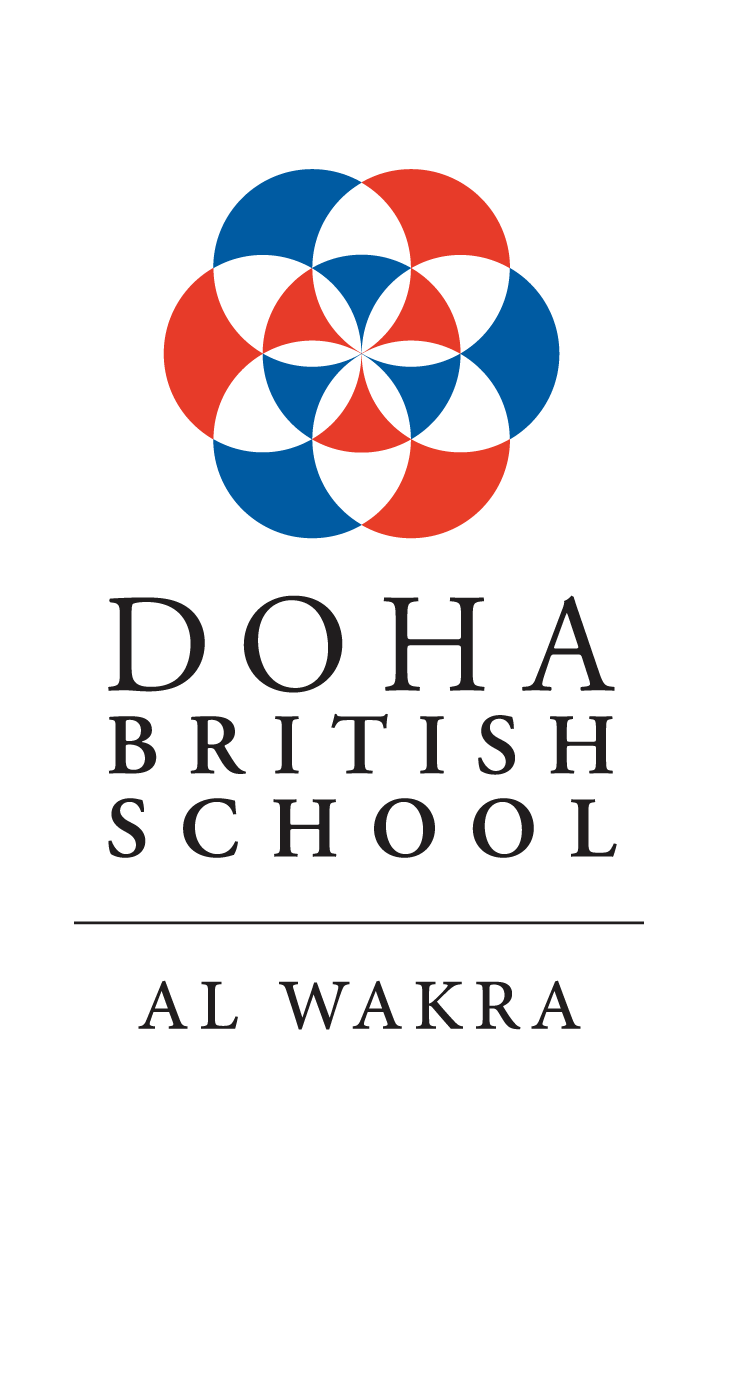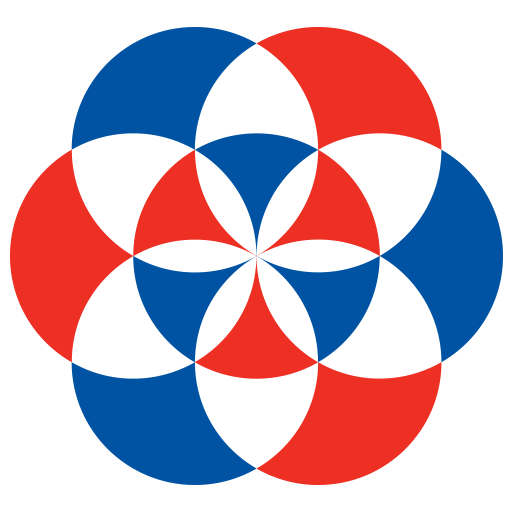Our Subjects
The Art department at Doha British School provides students with the opportunity to engage with a wide variety of materials, techniques and artistic styles. It is our role to equip students with the skills, knowledge and experiences that will enable them to develop their own ideas, concepts and responses in creative and innovative ways.
Within Key Stage 3, students focus on their understanding of fundamental art skills through an introduction to a broad range of new techniques, material, artists and themes. Students experience practical tasks, discussions and group work to help set the foundations for developing as an effective artist and creative thinker.
At GCSE Level, the Art Department offers two Edexcel qualifications; Textile Design and Fine Art. These courses cover a wide range of disciplines to develop both artistic and design based skills. In Textile Design, students will experiment with digital textiles, dyed fabrics, printed fabrics, embellished fabrics and fashion design. In Fine Art, students will undergo workshops in drawing, painting techniques, printmaking, photography and digital editing.
Each course is composed of two research projects (forming 60% of the whole GCSE) and an exam project (forming 40% of the whole GCSE).
At post 16, the department offers IB Visual Arts which allows students to work in accordance with their own area of expertise. Our aim is to get our students where they want to be. Previous students have progressed to study Art-based courses such as fine art, fashion design, architecture, product design and many more at Universities around the world.
As a department we are keen to introduce our students to the exciting opportunities available within the creative industries.
The Design and Technology (DT) department’s philosophy is to provide an exciting experience for all pupils. We aim to challenge pupils’ creativity and problem solving skills through a wide variety of projects that encourage independent and practical thinking and that use a range of different materials.
DT is a dynamic subject that is keeping pace with the ever-changing technology used in industry. It prepares pupils for a wide range of disciplines, including engineering, architecture, product design and creative arts.
DT at Doha British School focuses on these core elements of creativity and critical analysis within each project. The department has two fully equipped workshops and a design studio with IT facilities which boasts a varied of CAD/CAM facilities. Students will have the opportunity to undertake projects that call on professional level software and hardware including 3D printers, laser cutters and CAM Vinyl cutters.
The variety of students’ projects as they enter the examinations demonstrates a key part of what makes the department such a vibrant place to be. We publicly display student work year round to showcase each students’ individuality and the choices they made to ensure that their design was bespoke.
KEY STAGE 3
At each level in the first three years, the emphasis is on enjoyment and learning, through experiencing, a wide range of practical skills and techniques related to design and the manufactured world that is all around us. All the projects that are undertaken will consist of key elements taught at exam level.
GCSE
This course is designed to encourage pupils to develop an awareness of the nature and importance of Design and Technology in a rapidly changing society. Pupils learn to combine practical skills with an understanding of aesthetic, social and environmental issues, function and industrial practices, all of which are essential in the technological field. At GCSE level, pupils follow the Edexcel specification. Within Doha British School students can take one of two pathways for Design and Technology. The subject focuses on either resistant materials or graphic product design. Both pathways offer a rigorous learning journey to that will develop student’s creativity, design capabilities and critical analysis skills.
The English secondary curriculum at Doha British School provides students with the opportunity to acquire a range of skills; not only to flourish academically, but to provide a foundation of knowledge required outside of the classroom and the wider community.
Our KS3 curriculum is catered around reading, writing and speaking and listening components that transitions across to KS4 and KS5. A broad British curriculum covering Shakespeare, a novel and creative writing are all studied to ensure English at DBS is creative, inspiring and relevant. Alongside this, all students will complete the English Language IGCSE and English Literature IGCSE course at KS4. Students will complete coursework and sit an exam for both courses to ensure all students reach their full potential and beyond.
Welcome to the Humanities department. We pride ourselves on being at the forefront of current events, global issues and future solutions. Through History, it becomes easier to understand events and the reasons behind them, enabling us to learn from past encounters, ensuring we don’t repeat the same mistakes, or we succeed through collaboration. Through Geography, we can understand global processes from a human, physical and environmental perspective. It allows us to see why the world is the way it is, how we have been able to survive as humans for so long, how we have developed huge metropolises and megacities, where really, there should be no life able to exist. Through Psychology, we can explore the human mind. We can begin to understand how it works, the importance of sleep and relationships with other human beings, and how interactions between us are on a much deeper level than we expect.
When we bring all of these individual strands together into one Humanities family, we begin to see how much of life around us is driven or impacted by these three subjects. It is essential to have some form of knowledge around the Humanities. It helps us to respect decisions and the world around us, it helps us to foster a community spirit in times of need, such as war or the climate crisis. Most importantly, however, Humanities provides us with the tools to be inquisitive and investigative of the world around us – something that we should never stop doing.
“The calling of the Humanities is to make us truly human in the best sense of the word” – J. Irwin Miller
There are three main aims in the teaching of mathematics at DBS.
- To instil an interest and desire to learn mathematics.
- To produce a confident student who is well equipped to function in society.
- To instil the required amount of mathematical knowledge to support the future education of a student.
These three aims are equal in their importance and are the focus of our teaching and learning throughout all key stages.
Mathematics is an integral part of everyone’s life and it focuses on methods to portray real life events or circumstances so that they can be analysed, reflected upon and adapted to support any situation. Mathematics is the means by which the world we inhabit can be explained. Mathematics in society is relevant to everyone and is made rich through a multi-skilled approach which creates the desire to delve further into this discipline. In this way, the learning is not only enriched but it becomes challenging. Mathematics is a valued and necessary tool in many disciplines and challenges students in their studies to prepare adequately for their future careers.
There are numerous skills and methods which are taught to achieve the above aims. During the lessons skills in numeracy, algebra, shape and space and data handling are supported. Students are encouraged to analyse their methods, results and discuss alternative routes for problem solving. They are led towards independent learning via websites and investigations. Teamwork as well as independent work is integral to the learning to produce collaborative and confident students who can plan, adapt, communicate, make decisions and take responsibility for the outcome. Skills and theory are used in real life scenarios to show how mathematics is useful in everyday life. Achieving levels of competency are important together with the application of mathematical knowledge. The use of technology is highlighted during the courses whether it is a website search, the use of various programs, communication between students and their teacher or using different types of calculators with various functions. IT is used to support but not supplant numeracy. In Key Stage 3, numeracy is emphasised as an important skill to be applied in all the work. This is to give a strong foundation and to later facilitate learning of mathematics at Key Stages 4 and 5. Not only are students taught to master algebra and graphical skills, but the ability to plan, create relevant diagrams, to visualise a problem and explain the results is part of our education for transferable skills. This also includes comparisons of methods, analysis and decision making which is often addressed in teamwork and discussion.
Through a variety of teaching methods and a diverse curriculum, students are prepared to acquire the three aims.
The secondary Music curriculum at Doha British School offers pupils a natural academic and practical progression from Year 7 up to University, for a global community. We strive to offer our students with the opportunity to meet and exceed their academic potential as well as equipping them with a growth mindset for learning.
In Key Stage 3 our pupils cover a wide range of topics and elements of music. They are taught in mixed groups. There is a balance between theory and practice where the former feeds into the latter. The KS3 curriculum has been purposefully designed to enable students to choose Music GCSE as an option, equipping them with strong foundations to pursue their learning journey.
At Key Stage 4, we follow the Edexcel GCSE curriculum. Students use the knowledge and skills gained from KS3. Students study 8 set works, they also have to record 2 tracks and compose 2 pieces.
At Key Stage 5, we follow the Edexcel A-level Music curriculum. Students have to record a 8mn recital, compose 2 pieces, and study 12 set works.
Our curriculum is not just about the academic challenge. Throughout the academic year, plenty of opportunities are available to our students to play in front of an audience. From special events like the Winter Bazar, International Day, Graduation, and others to more formal recitals and full on school productions. There are also open mic sessions at lunch time where students can perform in front of their peers.
Curriculum Intent
Our Music curriculum is underpinned by the ‘DBS Ways’ and embodies our whole school approach to character education, providing a deep and rich experience for all.
Relevant
Music at Doha British School is at the cutting edge of the British National Curriculum and is reviewed and refined annually. This allows our students to access a curriculum that is relevant to current events around the world and become more progressive with research and technology. Each Key Stage lay the groundwork for the next stage of our students learning journey.
Our KS5 curriculum is relevant to universities globally and prepares students for degree programmes and higher education.
Rich
Music at Doha British School promotes a curriculum beyond the classroom through offering students a wide range of experiences to develop cultural capital. Music provides additional learning contexts with a variety of events throughout the academic year. In the classroom we embrace all the opportunities a global community offers to us, enriching our lessons through our differences and similarities that we bring to our DBS community.
Challenging
At Doha British School the music course is designed to meet the academic, personal and cultural needs of our students and better equip them for future challenges, while at the same time creating enjoyable learning environments that inspire and motivate. We focus on building strong characters who can face challenges in and out of the classroom, and who develop an inner belief in challenging themselves to improve everyday.
The PE development at Doha British school provides students with the opportunity to develop their physical, personal, social and cognitive skills through a high quality PE curriculum allowing the students to succeed and excel in a variety of activities.
We actively promote an appreciation of physical activities and encourage lifelong participation. Our KS3 curriculum covers activities within the categories of invasion games, striking & fielding, creativity, health & fitness and swimming to ensure that we provide an enjoyable experience, which inspires our students to have a passion for physical activity both in school and in the wider community.
At KS4 we offer our students the opportunity to further their passion for PE by studying GCSE PE. Students will be educated about the importance of anatomy & physiology, physical training and sport psychology. Students will be assessed in three practical sports, sit two exams and complete a personal exam programme.
The aim of science is to develop curiosity, knowledge and reasoning so that students can better understand the world around them. Our curriculum embeds key skills and concepts using an evidence based approach, ensuring progress and addressing misconceptions from Year 7 right through to Year 13.
As a department we recognise the impact that the teaching of core subjects can have. That’s why our curriculum is:
- Focused on progression – We have adapted our curriculum in line with the latest research, so that we can challenge and develop our students from their first science lesson until their last.
- Rich – Our theme based approach to learning means that every topic we cover is linked not only to other science topics but also to other subjects. This approach develops our students’ ability to problem solve and think outside the box, and helps to prepare them for life after school.
- Real – We look at real life examples and applications of the theories and concepts that we cover, not only in Qatar but across the world. Our focus is on developing our students as scientists, not just teaching them how to pass exams.
The Arabic Language Department at Doha British School is dedicated to enhancing students’ Arabic language skills, fostering proficiency, and equipping them to confidently engage with society and apply Arabic in various life contexts.
KS3:
In this stage, students study a variety of subjects focusing on different language skills, including reading comprehension, writing, grammar, and listening, as outlined in the Ministry’s curriculum. They are also introduced to writing various types of texts, such as storytelling, argumentative, and informational pieces, along with rhetoric lessons to improve their ability to understand and analyze texts.
KS4:
Students may pursue one of two paths:
Arabic as a First Language: Following the Edexcel IGCSE curriculum, students explore a wide range of topics, including health, education, and travel, along with in-depth study of Arabic grammar and rhetoric.
Arabic as a Second Language: Following the Edexcel GCSE curriculum.
Each path is designed to refine students’ linguistic skills and prepare them for further academic and professional use of the Arabic language.
Islamic Studies is taught in both Arabic and English in alignment with the Ministry of Education and Higher Education curriculum in the State of Qatar. The program encompasses multiple branches, each aimed at developing a well-rounded, contemporary Muslim identity equipped to face future challenges. These branches include:
- The Holy Quran: Students engage in the recitation, memorization, and interpretation of various Surahs and verses, focusing on correct pronunciation (Tajweed) rules, including silent letters (nun sakinah), tanween, and elongation rules.
- Hadith: Students study and memorize selected Hadiths of the Prophet (peace be upon him), interpreting their meanings and exploring the moral lessons within.
- Islamic Doctrine: Lessons on Islamic beliefs, such as monotheism and its impact on the Muslim character, help shape a strong foundation, protecting students from superstitions and misconceptions.
- Islamic Jurisprudence: Through lessons on purification, fasting, trade, and other aspects of Islamic law, students learn to differentiate permissible from prohibited practices, fostering an ethical and conscientious approach to daily life.
- Biography and Islamic History: Students study significant events, such as the Battles of Badr and the Trench, and notable figures like Saad bin Abi Waqqas. This knowledge builds a sense of pride in Islamic identity and offers an accurate understanding of Islamic history.
This comprehensive curriculum aims to nurture ethical, knowledgeable, and globally-aware Muslim students.
In Qatar History, we follow the Ministry of Education’s specification to provide students with a deep understanding of Qatar’s rich cultural heritage, significant historical events, and its role in the modern world. Students will explore topics such as the founding of Qatar, its development through key historical periods, and the nation’s place in global affairs today. They will also learn about important figures, cultural traditions, and the economic transformation of Qatar, helping them gain a well-rounded appreciation of the country’s unique past and future.” At KS3 Students study Qatar History from Year 7-9, using the materials provided by the Qatar Ministry of Education. The topics covered in each year include the following:
Year 7:
Qatar and Arab and Global Issues, Rights and Duties, Citizenship, Civil Liberties, Civic Engagement in the State of Qatar, National Security and its Dimensions, the Components of National Security and its Institutions, Tourism and Trade in the State of Qatar.
Year 8:
Economic and Social Conditions in the State of Qatar between 1913-1949, Economic Resources in the State of Qatar, Social Change in the Qatari Community and its Factors, Social and Economic Security, The Industrial Sector of the State of Qatar, Primary Sources of Human Rights, Women’s and Children’s Rights, Qatari Women, World Peace and Intolerance and Racial Discrimination.
Year 9:
Culture of Peace, Dialogue Among Civilisations, The State of Qatar’s Efforts in the Field of International Cooperation, Efforts of the State of Qatar in Environment Protection, National Identity (Dimensions – Components) National Identity and Globalisation, Shura and Democracy, Political Security, Tolerance and Coexistence, Achievements of the State of Qatar in Transportation.














